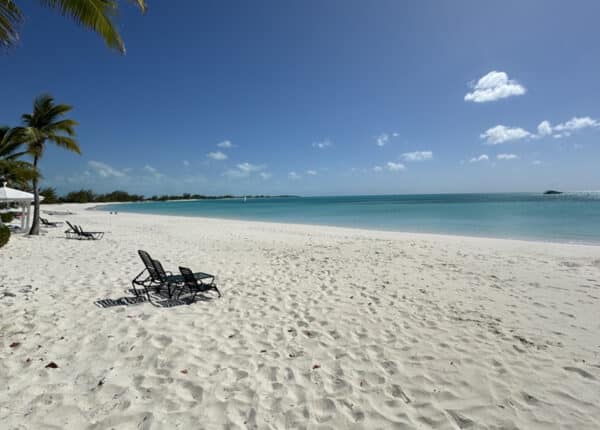Dennis Chung: Private Sector Growth and Jamaican Development
By Dennis Chung
CJ Contributor
LAST week I wrote about what the pillars of growth are. Today I want to answer a question, often asked in a roundabout way, by persons who say that the private sector has not done what is necessary to grow the economy, so why should they be accommodated with a more business-friendly environment. This is a question asked often by persons who I don’t think truly understand how markets work.
It is very important to understand, as I have often said, that sustainable growth cannot, and will not, happen without private sector prosperity. This concept is sometimes elusive in the Jamaican society, where it is often felt that the “big” man just wants to exploit the “small” man and so must be doing something unethical or illegal to make his money.
There were similar sentiments against the banks in the US, after the 2008 financial crisis, but this emotion soon gave way to the practical knowledge that the poor cannot improve their lot without the growth of the “greedy” private sector. The problem we have is that this feeling is not only restricted to the so-called small man but is oftentimes perpetuated by some politicians and intellectuals in their quest to explain why market economies are bad, and instead proffer state intervention and more brimstone and fire on the rich through taxation.
Ironically, these same persons who find it convenient to put down the “capitalists” are usually very persistent in seeking charitable contributions from them, or support in some other financial matter. In fact, much of the charitable spending that happens in the society is not from government, but rather from private companies and individuals.
But why do I say that private sector-led growth is critical to sustainable economic growth?
We can answer this question by first understanding what drives economic growth. Economic growth is measured by the growth in the Gross Domestic Product (GDP), which is simply the increase in real productive value from period to period, that is adjusted for inflation. GDP growth involves private sector production and spending, as well as government spending. So one may say that government spending is a part of GDP, and therefore, why is the private sector necessary? And it is for this reason that government can play a role in stimulating economic growth, such as during a recession, as they also contribute to GDP.
The problem is that government spending is not sustainable with a stagnant, or struggling private sector. And this has been the experience in Jamaica, and we have seen a similar example in the US model coming out of the recession, as opposed to the European approach, which did not emphasize market growth. The reason why government spending is not sustainable without private sector growth is that government spending depends significantly on private sector income, through taxes. So the income taxes, customs duties, corporate tax, and consumption tax depends on activity in the private sector. Therefore, if the private sector is stagnant, or declining, then it is logical that there can be no increase in government spending.
Thus, in the final analysis, GDP growth at every level depends on private sector activity. Therefore, the logical conclusion is that if we want to see robust growth in the economy, then we need to have robust private sector growth.
It would seem logical, then, that fiscal and monetary policy should have as its primary goal, the facilitation of growth in the private sector. Put another way, which Obama and Bernanke understands very well: the role of government policy must not only be full employment, but also high- value employment through constant innovation. On the contrary in Europe, and particularly Greece, the focus of policy was not on private sector facilitation but rather, fiscal consolidation. The result of both scenarios is there for all to see.
This is important for us to understand, not just in Jamaica, but also the Caribbean. This is because the Caribbean has a tendency towards a government dependency syndrome. Add to that the culture of a lack of embracing of private sector success, and you have a compounded negative effect.
The market economy may not be a perfect system, but the truth is that it’s the best. If we want to improve the quality of life for everyone, including the most vulnerable in society, then it is essential that private sector growth be robust.
So as we continue the implementation of the IMF agreement and structural policies, we need to continue to bear in mind that at the heart of it must be the facilitation of a business environment that encourages private and corporate prosperity. So, as an example, the concepts companies of lower tax rates for PAYE and companies, lower energy rates, more efficient government bureaucracy, and improved law, order, and justice system are all critical to supporting that private sector growth.
Our focus of policy must be on encouraging investment and spending through competitive return on investments or feeling secure about one’s future. Our focus must be on businesses and individuals feeling safe, and respected by the justice system. It is this focus that will make Jamaica experience robust growth and become the place to live, work, and raise families.
Dennis Chung is a chartered accountant and is currently Vice President of the Institute of Chartered Accountants of Jamaica. He has written two books: Charting Jamaica’s Economic and Social Development – 2009; and Achieving Life’s Equilibrium – balancing health, wealth, and happiness for optimal living – 2012. Both books are available at Amazon in both digital and paperback format. His blog is dcjottings.blogspot.com. He can be reached at drachung@gmail.com.







